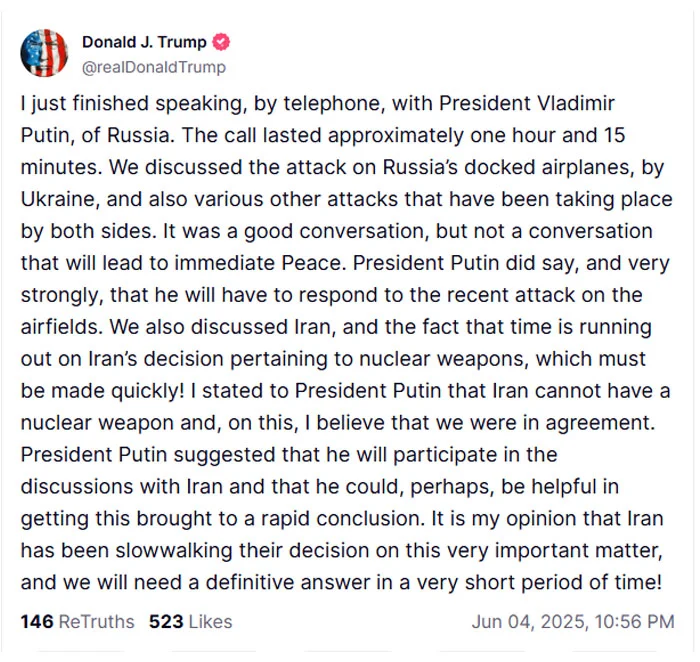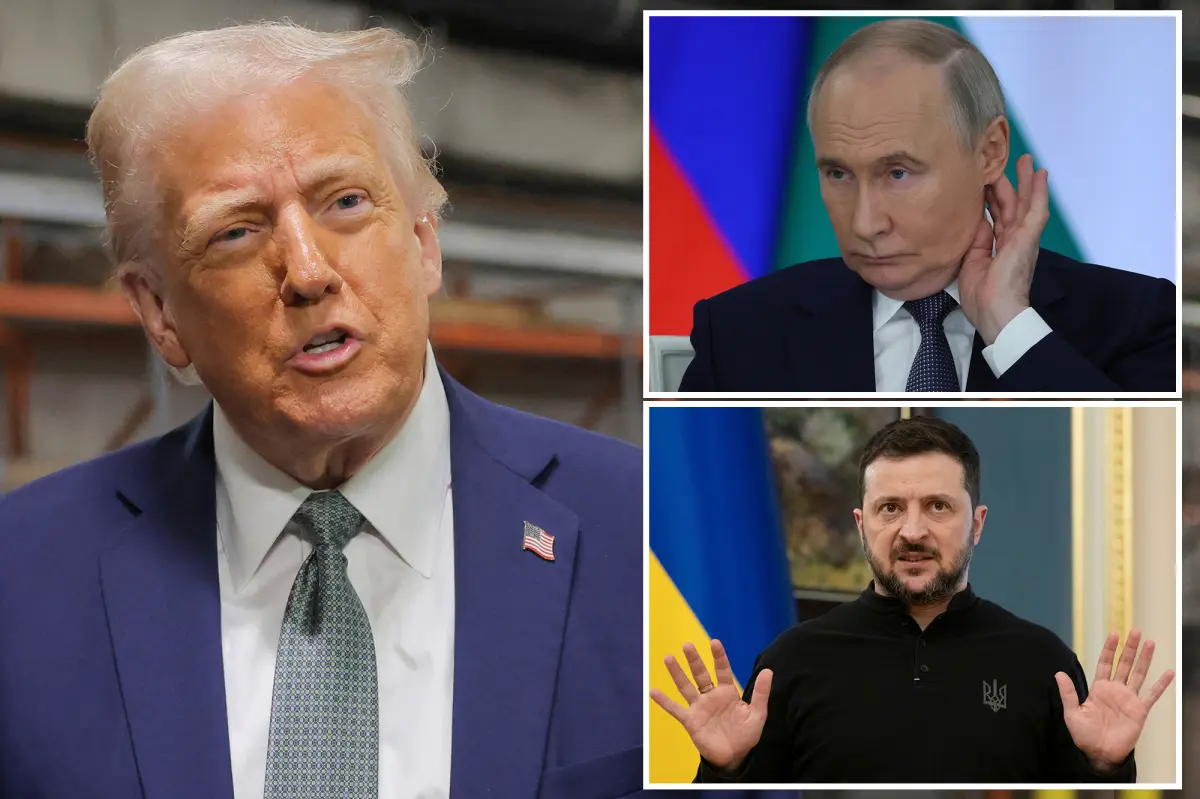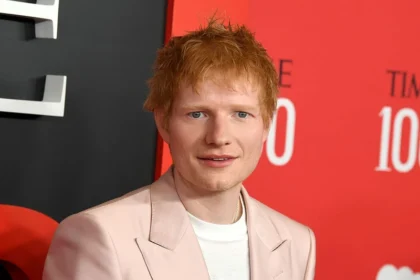In a high-stakes phone conversation on Wednesday, Russian President Vladimir Putin informed former U.S. President Donald Trump that Moscow would be forced to respond to recent Ukrainian drone attacks targeting Russian military infrastructure. The disclosure was made by Trump in a social media post, adding fresh urgency to ongoing geopolitical tensions surrounding the Russia-Ukraine war.
Putin Warns of Military Response to Ukrainian Strikes
Trump said he and Putin discussed recent Ukrainian drone attacks, specifically citing assaults on Russian airfields where long-range aircraft were stationed. The former U.S. president emphasized that Putin “very strongly” signaled a coming response from Moscow.
“He made it clear that retaliation was inevitable after the recent attacks on Russia’s docked airplanes,” Trump noted in the post. “It was a good conversation, but not one that will lead to immediate peace.”
The Kremlin echoed these sentiments earlier on Wednesday, stating that military responses were “on the table”following attacks deep inside Russian territory. Officials in Moscow also accused the West—particularly the United States and the United Kingdom—of indirectly supporting Ukraine’s recent actions.
West Urged to Rein in Kyiv
Russia urged both Washington and London to restrain Kyiv after Ukrainian officials celebrated the drone operations, framing them as proof that Ukraine remains capable of counteroffensive strikes over three years into the war. However, Western leaders, including U.S. and British intelligence, denied having prior knowledge of the attacks, which reportedly targeted nuclear-capable Russian bombers.
Despite repeated assurances of neutrality regarding Ukraine’s autonomous military decisions, the Kremlin’s accusations suggest growing distrust toward NATO and Western nations.
Putin and Trump Discuss Iran Nuclear Deal
Aside from Ukraine, the phone call also touched on another pressing global concern: Iran’s nuclear ambitions. Trump revealed that Putin expressed willingness to take part in future negotiations surrounding a renewed nuclear deal with Tehran.

“I told President Putin that Iran must never be allowed to obtain a nuclear weapon, and I believe we were in full agreement,” Trump wrote. He criticized Iran for stalling, saying, “It is my opinion that Iran is slow-walking this decision, and we will need a definitive answer soon.”
The Kremlin later confirmed that Putin had also communicated with Iranian President Masoud Pezeshkian and expressed support for advancing talks around a nuclear agreement.
Trump’s Balancing Act Between Putin and Ukraine
Trump’s evolving stance on the Russia-Ukraine conflict has raised concerns among U.S. allies. Although he once declared he could end the war within 24 hours, he has provided no concrete plan. His seemingly conciliatory tone toward Putin has also sparked backlash, especially after a heated exchange with Ukrainian President Volodymyr Zelensky during a previous Oval Office meeting.
Still, the call between Trump and Putin suggests that despite friction over Ukraine, there may be room for U.S.-Russia cooperation on issues like Iran.
What Comes Next?
As Moscow hints at escalating its military posture and Ukraine continues to mount strategic strikes, the international community watches with growing concern. The potential for Russian retaliation could further destabilize an already volatile region.
Whether or not Putin’s call with Trump signals a new diplomatic channel or simply a warning remains unclear — but what is certain is that tensions in Eastern Europe and the Middle East are far from resolved.




